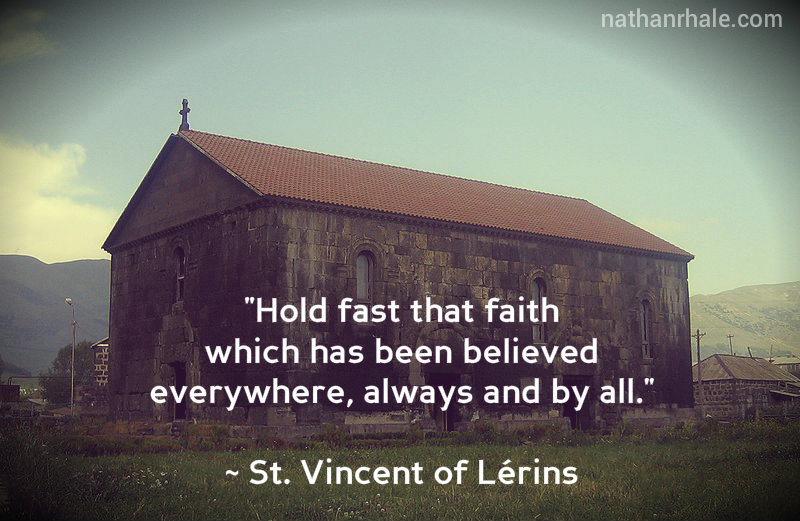This Kept Me From Abandoning The Church
Not so long ago I was ready to abandon the Church, at least in all its institutionalized forms.
I had been hurt (no one’s fault but my own, really) and was confused by my “sense of call”. I couldn’t seem to get hired full-time at a church, even though I felt I had the skills and was being led that direction by God. Although it’s obvious to me now, I couldn’t understand why churches in my lifelong Christian denomination (Baptist) wouldn’t hire me. I came to faith in the Baptist church, was married in the Baptist church, and started my ministry in the Baptist church. It just turned out I wasn’t Baptist 😉
After months of interviews and no progress, I decided to take a non-ministry position in Arizona. I saw it as a chance to start fresh and figure out where I belonged. Nothing stuck. It wasn’t that I was looking for a perfect congregation, but going back to the drawing board allowed me to see a fundamental unbalance in the Evangelical landscape. Everybody seemed to emphasize one pet doctrine or worship style at the expense of everything else.
To make matters worse, my wife and I couldn’t find a spot where we were both comfortable committing to long-term. I contacted a local house-church I found online, explained my situation, and said we needed a place to figure out some things. I was hopeful because they seemed to want to move beyond institutionalism and focus on authentic community. They blew me off on the phone and never reached out again1.
It was rough. I ached for a church home, and the fact that our search was causing some tension in our marriage only furthered my discouragement. I allowed my disappointment in the whole situation to turn to cynicism. My wife kept searching though, and didn’t let me give up, even though I wanted to. I was basically done, but she coaxed me into visiting one more church, where we discovered something that was–to us–remarkable.
Balance.
We looked in the bulletin we were handed on the way in and discovered this church had a peculiar philosophy of ministry and worship. They called it “three streams” and put it in terms of being liturgical, charismatic, and evangelical.
This idea of “three streams” Christianity has been vital for keeping me engaged with the Church, because it articulates exactly what I had been yearning and looking for, for so many years. It just makes sense:
The Scripture – Our authoritative guide in faith
The Sacramental – Our ancient practices and rhythms in faith
The Spirit – Our peace and power in faith [source]
In my own life, I’ve come to articulate this as being Catholic, Evangelical, and Charismatic. Each compliments the other and prevents excesses that are often identified in movements that focus on just one of these aspects of the Christian faith.
How can we be reverent, enthusiastic, focused on mission, grounded in history, open to the Holy Spirit, and looking to the future, all at once and all the while staying centered on the Gospel?
I think the balance lies in embracing the “Three Streams.”
- One merciful pastor at a local Lutheran church followed up with me, though, and offered to help me in my search, even if our family didn’t choose his church. He said the most important thing to do after a big move and lots of changes was to connect to a body of believers. I think I was too proud to take him up on his offer at that point in time, but I will always remember his kindness. ↩




